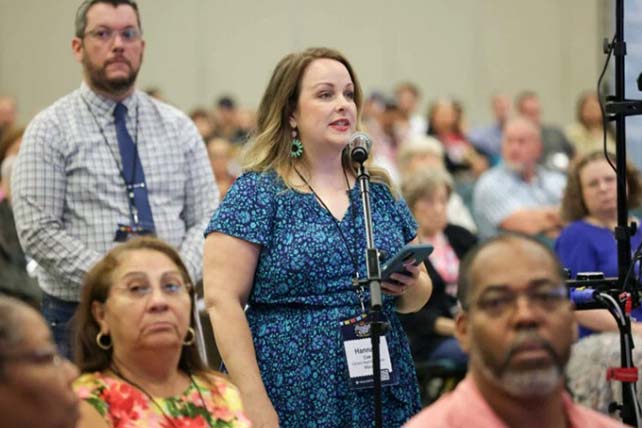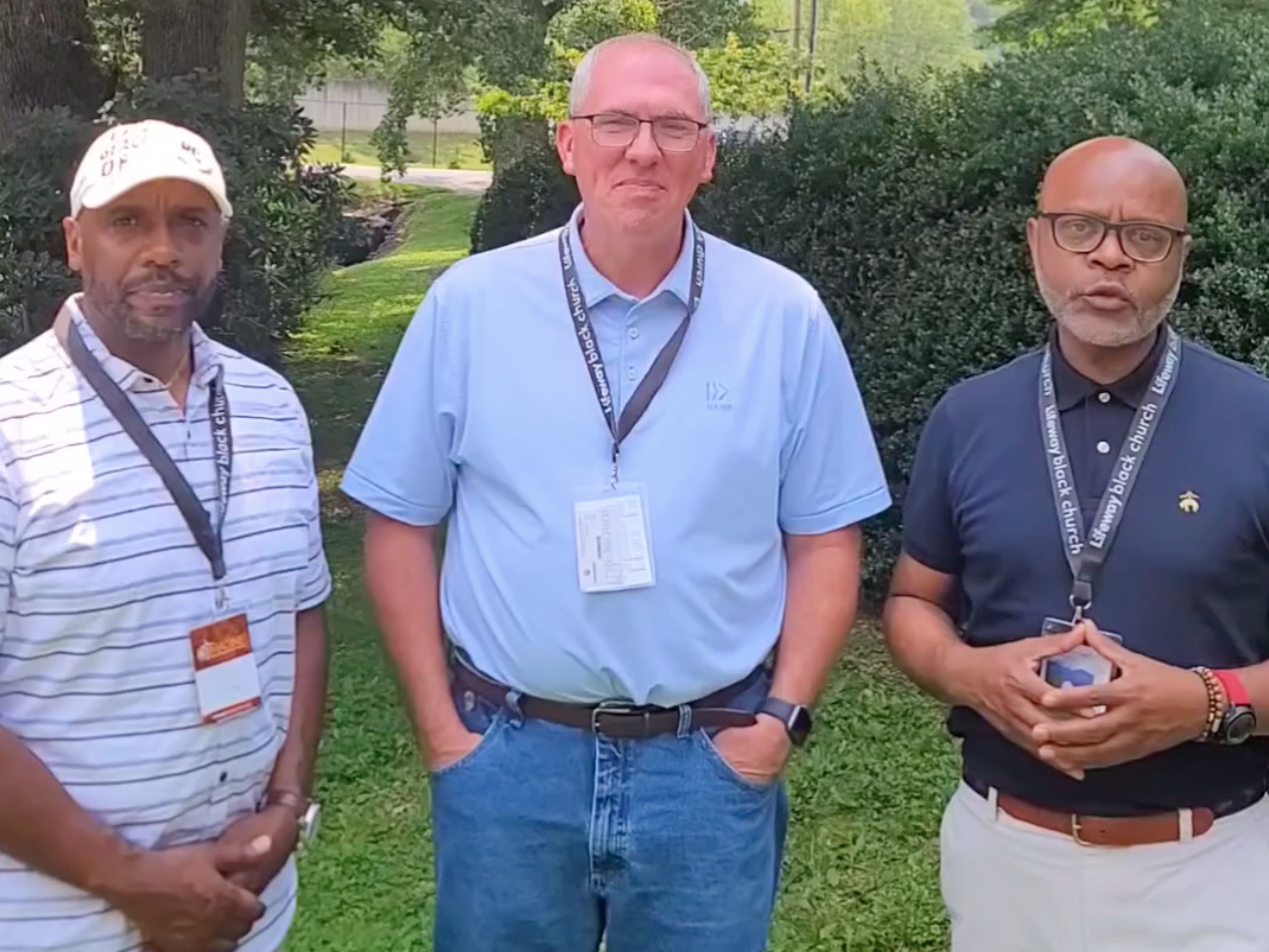Among the critics of the newly revised Florida standards for teaching African American history is Dr. Derwin Gray, founding and lead pastor of Transformation Church near Charlotte, North Carolina. On July 24, Gray tweeted, “Slavery is evil. There is no benefit.”
Slavery is evil. There is no benefit.
“I therefore hate the corrupt, slaveholding, women-whipping, cradle-plundering, partial and hypocritical Christianity of the land. Between the Christianity of this land, and the Christianity of Christ, I recognize the widest possible… pic.twitter.com/74crjhzhXP
— Dr. Derwin L. Gray (@DerwinLGray) July 24, 2023
With his tweet, Gray included a photo of Frederick Douglass and the abolitionist’s quote: “I therefore hate the corrupt, slaveholding, women-whipping, cradle-plundering, partial and hypocritical Christianity of the land. Between the Christianity of this land, and the Christianity of Christ, I recognize the widest possible difference.”
Also on Monday, Gray, author of “How to Heal Our Racial Divide,” tweeted: “Slavery, the evil, demonic, dehumanizing of image bearers, did not benefit Black Americans. The African people, my enslaved ancestors, were strong and resilient. They themselves must be highlighted, not slavery.”
When asked for comment about his tweets, Gray told ChurchLeaders he wanted to emphasize that “slavery must be denounced as an evil institution.”
New Florida Standards: ‘Slaves Developed Skills’
On July 19, Florida’s Department of Education made public its updated standards for teaching Black history in K-12 classrooms. They include a focus on the contributions and resilience of Black Americans, but also contain some controversial language.
For example, about the early 20th-century race massacres that occurred in the United States, one standard refers to “violence perpetrated against and by African Americans” (emphasis added). Another standard references “how slaves developed skills which, in some instances, could be applied for their personal benefit.”
Members of the Florida standards workgroup said they’re proud of the outcome, calling the curriculum “factual and well-documented.” But some educators, historians, and Democratic lawmakers aren’t happy with the new wording. Albert Broussard, a professor of African American studies, said although it’s good to show that Black history isn’t just “tragedy and sadness and brutality,” Florida is overstepping by “sanitizing” what occurred.
During a speech in Florida on July 21, Vice President Kamala Harris asked, “How is it that anyone could suggest that in the midst of these atrocities that there was any benefit to being subjected to this level of dehumanization?”
Florida Gov. Ron DeSantis: Slaves ‘Parlayed’ What They Learned
Florida Gov. Ron DeSantis, a Republican candidate in the 2024 presidential race, is defending his state’s new teaching standards. “They’re probably going to show that some of the [enslaved] folks that eventually parlayed, you know, being a blacksmith into doing things later in life,” he said on July 21. Although DeSantis wasn’t directly involved in revising the standards, he said the workgroup had “a lot of scholars” and built “the most robust standards in African American history probably anywhere in the country.”
DeSantis accused Vice President Harris of coming “to lie about Florida’s educational standards to cover for [the Biden administration’s] agenda of indoctrinating students and pushing sexual topics onto children.” The Florida governor has declared an “anti-woke” war, targeting critical race theory, certain library books, and LGBTQ initiatives.
Cedric Richmond, co-chairman of President Biden’s re-election campaign, called Florida’s revised teaching standards “disgusting” and “a symptom of the extremism that’s infected the Republican [presidential] candidates.”

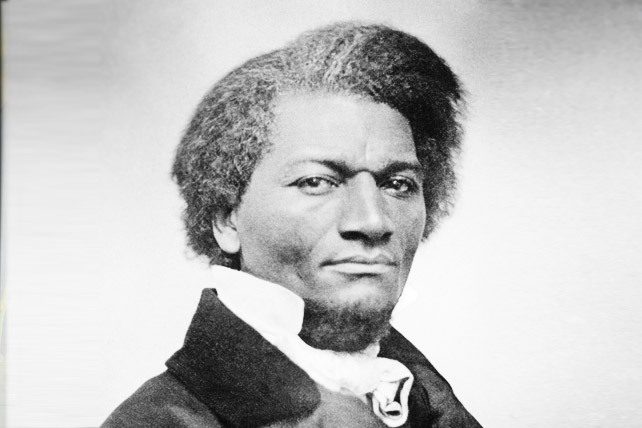


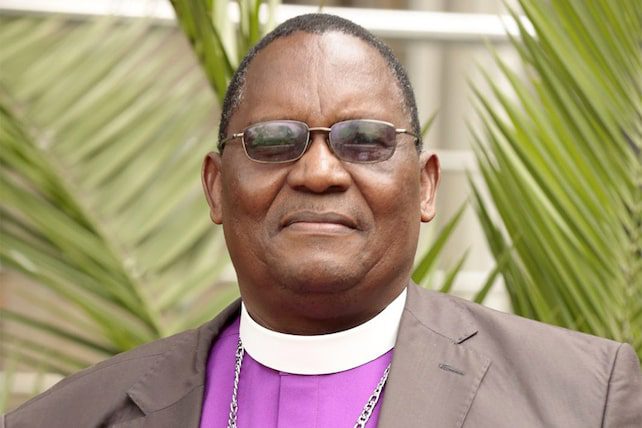

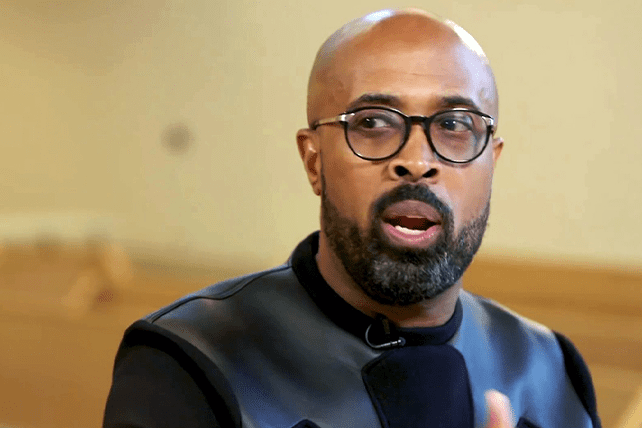
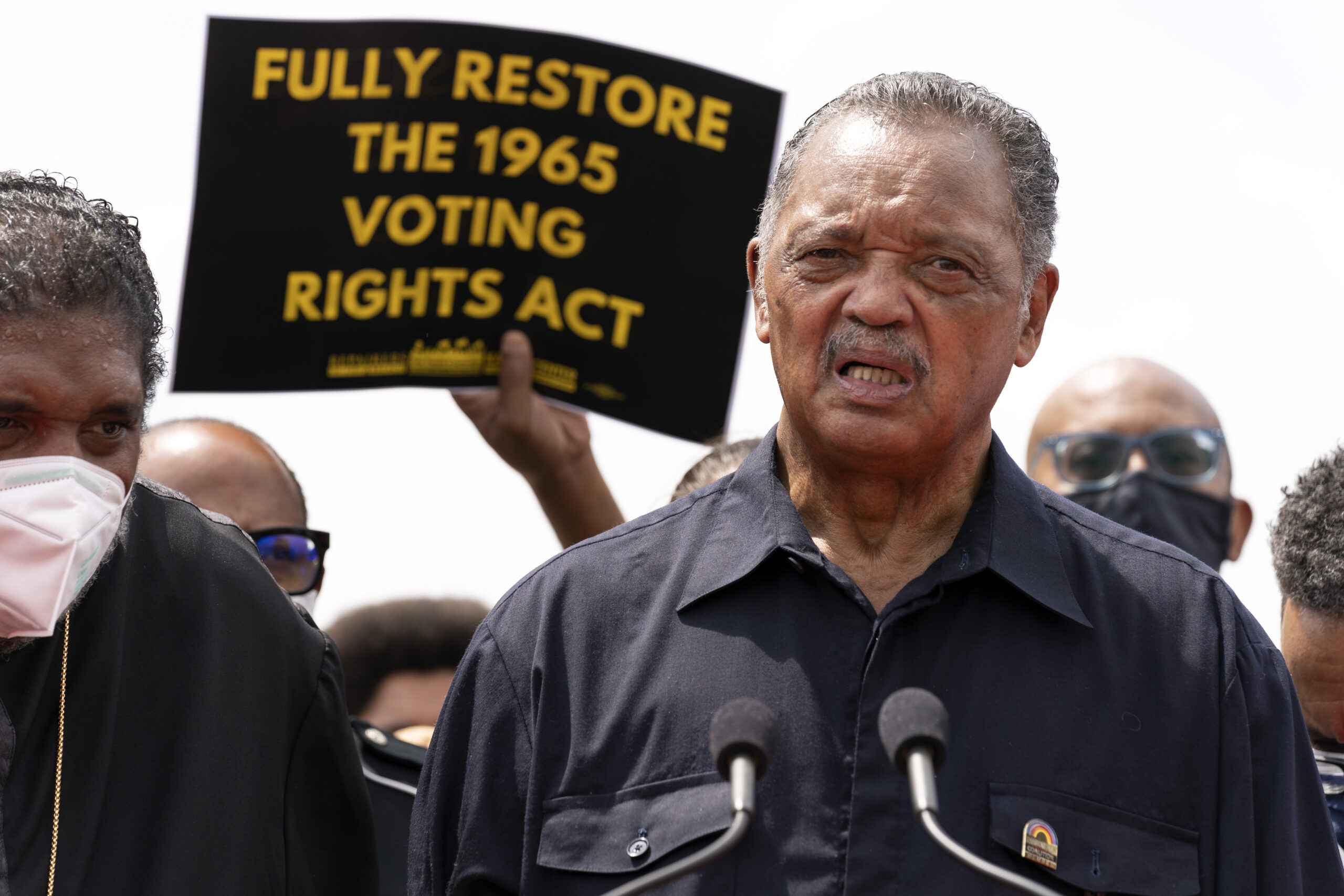







 None of us start off in ministry thinking, “You know what, I’m going to burn out”…yet burnout happens. So what can we incorporate into our lives and ministries to help us not only lead well, but also finish well? In this week’s conversation on FrontStage BackStage, host Jason Daye is joined by Mark Dance, Director of Pastoral Wellness at GuideStone Financial Resources. For 27 years, Mark served as a pastor and church planter and also helped launch Lifeway Pastors and the Care4Pastors Network. His latest book is entitled, “Start to Finish.” Together, Mark and Jason look at some important practices we can incorporate into our lives to help ensure that we do not veer off course in our ministries. Mark also shares some fresh insights about how neighboring well helps us flourish in both life and ministry.
None of us start off in ministry thinking, “You know what, I’m going to burn out”…yet burnout happens. So what can we incorporate into our lives and ministries to help us not only lead well, but also finish well? In this week’s conversation on FrontStage BackStage, host Jason Daye is joined by Mark Dance, Director of Pastoral Wellness at GuideStone Financial Resources. For 27 years, Mark served as a pastor and church planter and also helped launch Lifeway Pastors and the Care4Pastors Network. His latest book is entitled, “Start to Finish.” Together, Mark and Jason look at some important practices we can incorporate into our lives to help ensure that we do not veer off course in our ministries. Mark also shares some fresh insights about how neighboring well helps us flourish in both life and ministry.







